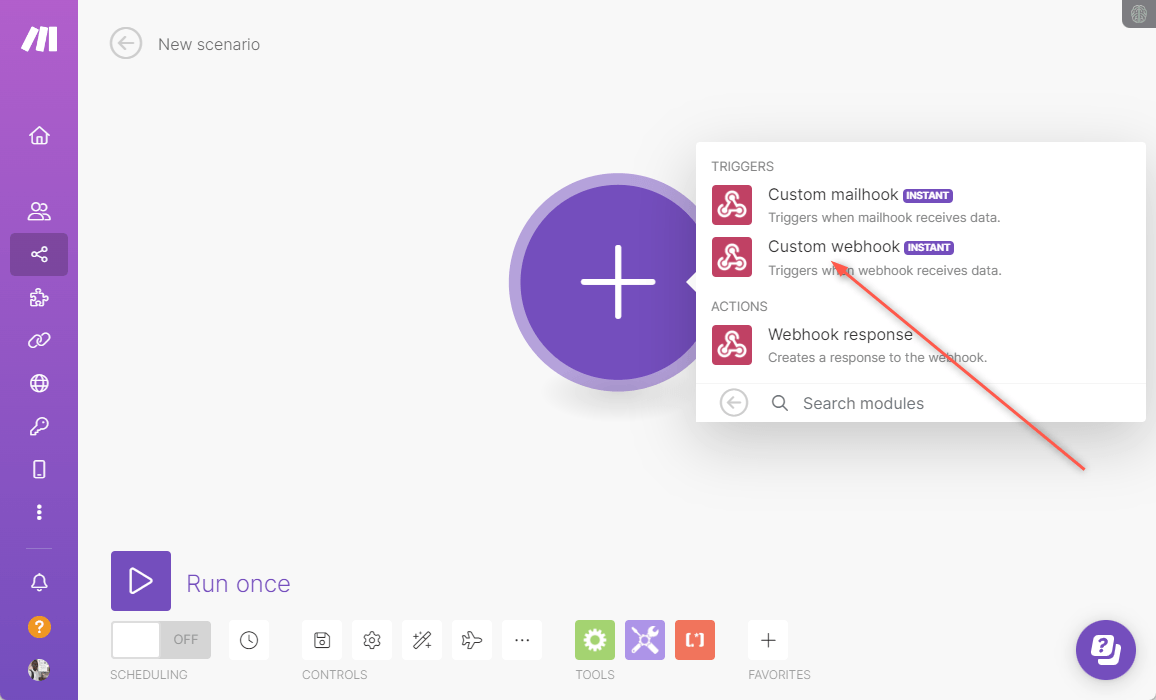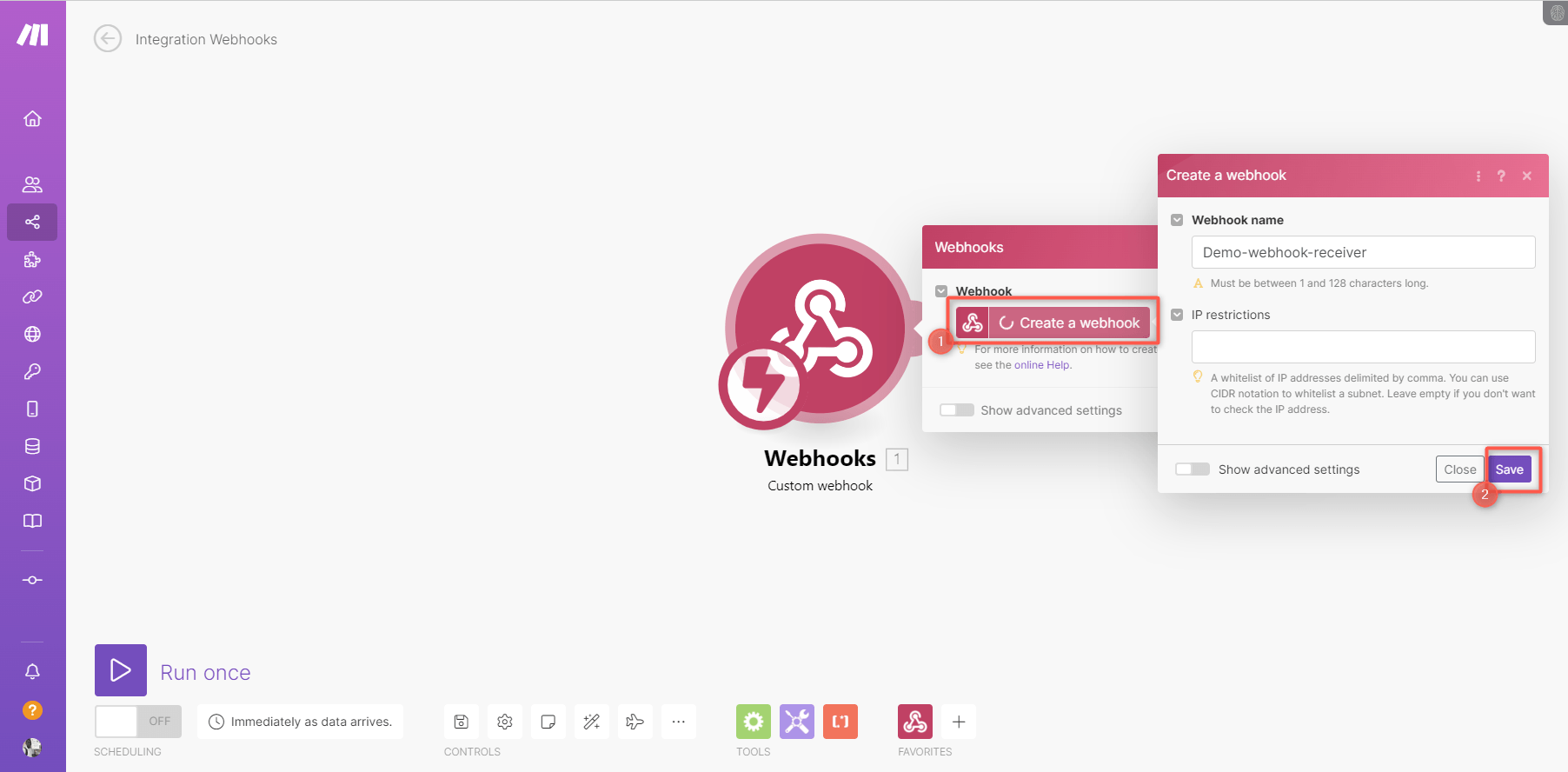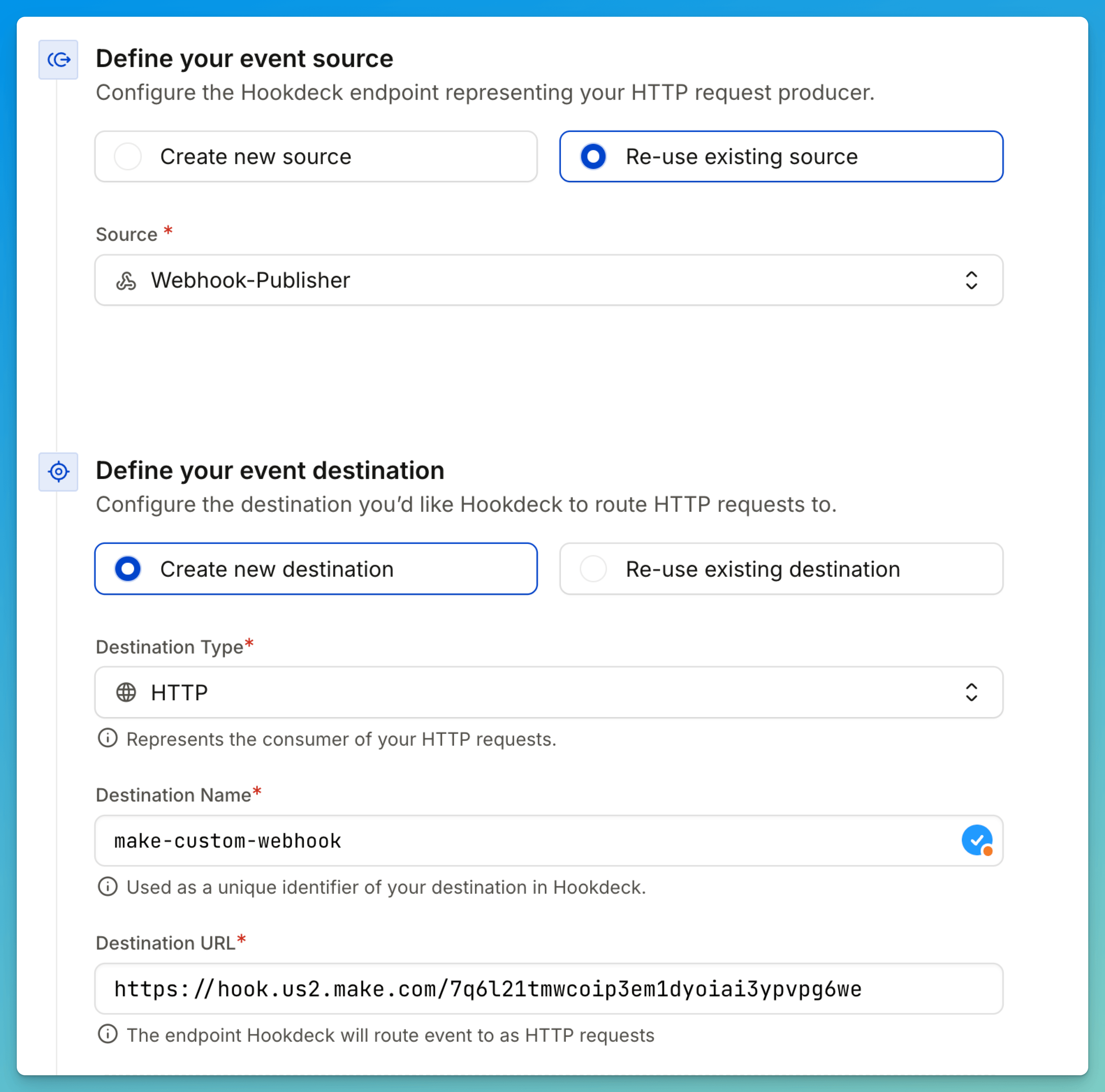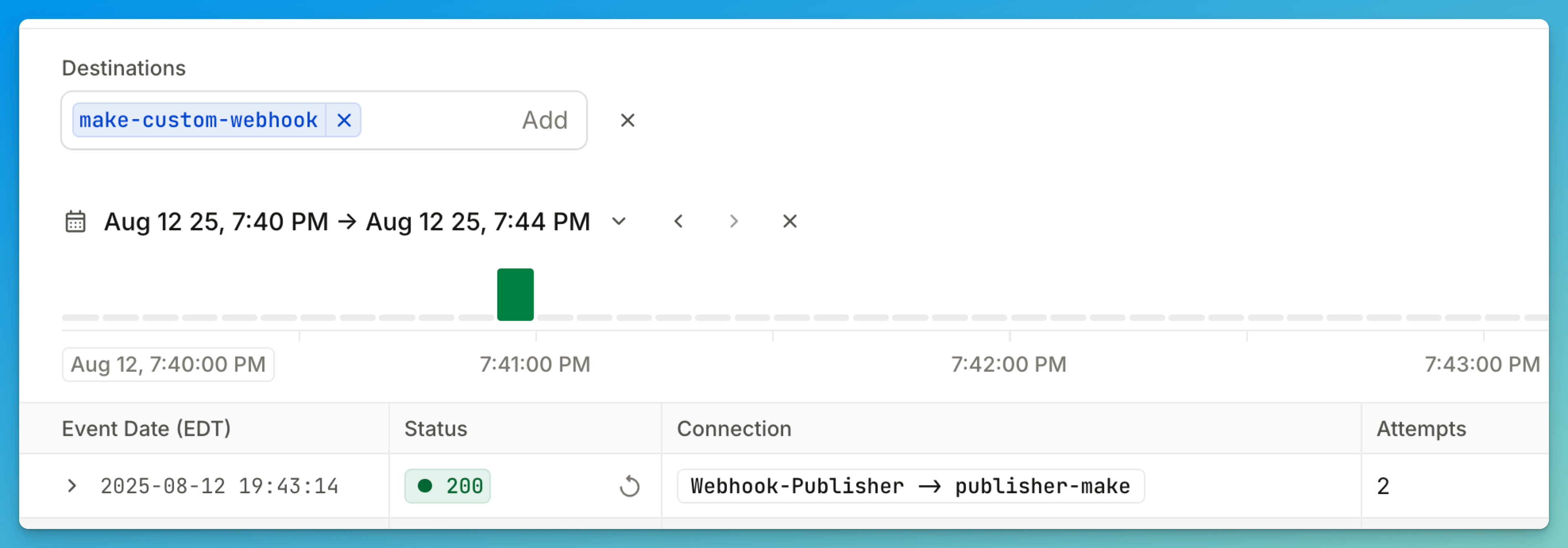How to Receive and Replay Custom Webhooks in Make with Hookdeck
Webhooks introduce event-driven integrations between different applications or platforms. When it comes to building event-driven architectures, it is recommended to introduce an event gateway to manage webhooks for security, routing, log tracing, throttled delivery, and webhook event replay.
In this article, we will explore how to leverage Hookdeck, an event gateway, to receive and replay webhooks to your Make workflows.
Setting Up Make Custom Webhooks with Hookdeck
Creating your Make webhook receiver
To receive custom webhook events from other platforms in Make, you need to create a custom webhook receiver. Follow these steps:
- Sign up or log in to your Make account.
- Create a new scenario or select an existing one where you wish to receive the webhook.
- Insert the Custom webhook module into your scenario. Each scenario must have its own webhook; you cannot use one webhook in multiple scenarios.

- Click on Create a webhook, then give it a name and Save.

Make generates a URL for the webhook receiver and starts listening for requests sent to this URL. You can send a request to this URL to have Make automatically determine the data structure for the webhook. Note the webhook URL provided, as it is needed below.
Learn more about Make webhooks in their documentation.
Configuring Hookdeck as your Event Gateway
Now that you have the custom webhook setup and listening on Make, integrate Hookdeck to handle webhook events and enable replay functionality. Follow these steps to create a webhook connection in Hookdeck:
- Sign up or log in to your Hookdeck dashboard.
- Select Connections on the side panel and click New Connection.
- Fill in the required information and Save:
- Source: Specify the source to be any platform or application you want to receive webhooks from.
- Destination: Set the destination to the URL provided by Make.

Hookdeck now acts as an intermediary between the source platform and your Make webhook receiver, forwarding the webhook events while providing additional reliability and observability features.

Test by copying the source URL from Hookdeck to use on the source platform where the webhooks are published or with Hookdeck Console to simulate example webhooks from popular webhook sources.
Managing Webhook Events in Production
Monitoring webhook delivery and status
When an event is triggered from the source platform, Hookdeck receives the webhook request and forwards it to Make's endpoint where any further modules are executed with the data received. You can monitor the events within the Hookdeck dashboard and track their delivery status.
From your Hookdeck dashboard:
- Switch to the Events tab from the side panel
- Filter by the destination created above
- View the activities of events on that connection

Events received can also be visualized on the Make dashboard. Switch to Webhooks on the left menu and click on LOGS.

Replaying failed or missed webhooks
In case any webhook events fail to be processed correctly by the Make webhook receiver, Hookdeck provides the ability to replay those error events:
- From the Hookdeck Event panel, locate the failed event and click on the kebab menu (three dots).
- Select Retry from the menu. This attempts to send the event to your Make webhook receiver again.


By replaying error webhooks, you ensure that failed events are delivered and processed correctly by the webhook receiver.
Debugging webhook issues with event logs
Hookdeck provides detailed event logs for every webhook, including:
- Full request and response payloads
- HTTP status codes and error messages
- Timing information and latency metrics
- Retry attempts and their outcomes
This visibility helps you quickly identify and resolve issues without digging through multiple systems or asking webhook providers to resend events.
How Hookdeck Enhances Make Workflows
Built-in reliability for critical events
Hookdeck queues and persists every webhook event, ensuring delivery even during Make downtime or rate limits.
One-click replay without re-triggering
Instantly replay any webhook from the Hookdeck dashboard without asking providers to resend events.
Real-time visibility into webhook traffic
Monitor all webhooks with detailed logs, payloads, and delivery status in a single dashboard.
Next Steps with Hookdeck and Make
By following the steps outlined in this article, you have learned how to create a webhook receiver in Make and add Hookdeck to reliably receive and replay webhooks.
Hookdeck offers many features beyond replay, including filters, transformation, and rate limiting, to help you build robust workflow automation that reliably communicates with external systems. Try Hookdeck for Free.
